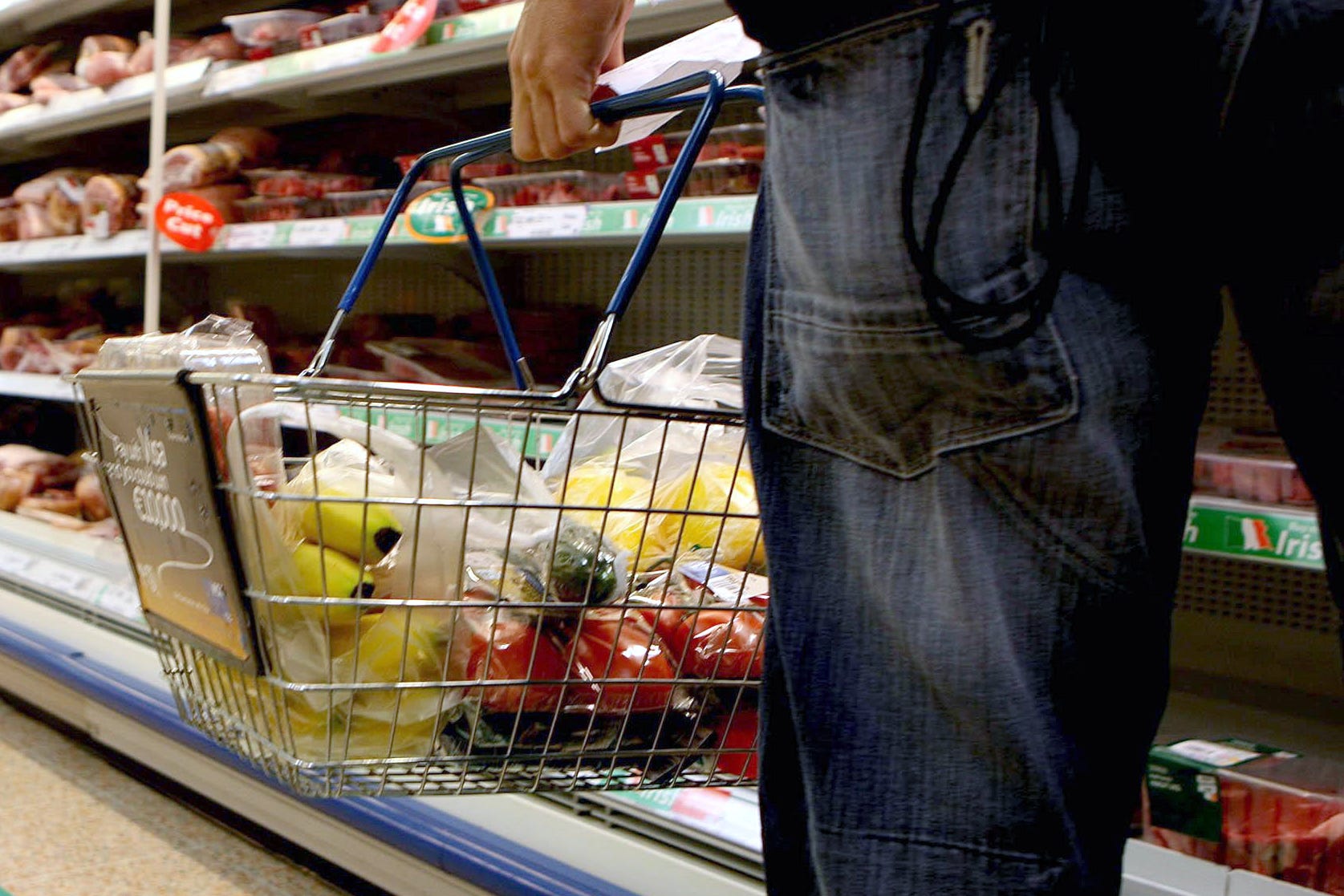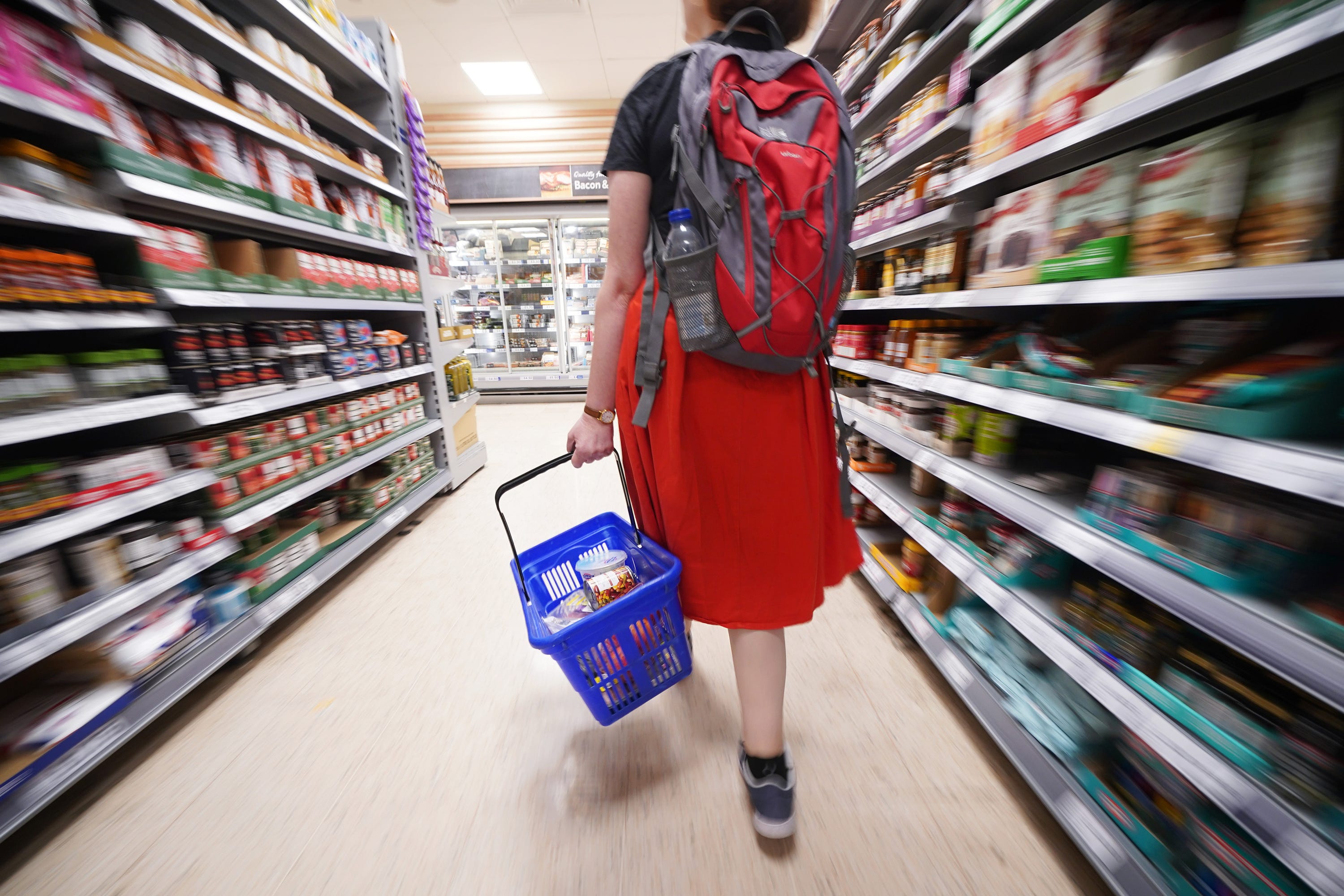Grocery inflation rises as supermarket trips hit four-year high
Households are already stocking up for Christmas

Your support helps us to tell the story
From reproductive rights to climate change to Big Tech, The Independent is on the ground when the story is developing. Whether it's investigating the financials of Elon Musk's pro-Trump PAC or producing our latest documentary, 'The A Word', which shines a light on the American women fighting for reproductive rights, we know how important it is to parse out the facts from the messaging.
At such a critical moment in US history, we need reporters on the ground. Your donation allows us to keep sending journalists to speak to both sides of the story.
The Independent is trusted by Americans across the entire political spectrum. And unlike many other quality news outlets, we choose not to lock Americans out of our reporting and analysis with paywalls. We believe quality journalism should be available to everyone, paid for by those who can afford it.
Your support makes all the difference.Grocery inflation rose again in October but households shrugged off increases with a four-year high in supermarket shopping trips.
Supermarket prices were 2.3% higher than a year ago last month, up slightly on September’s 2% increase but still within “typical levels”, according to analysts Kantar.
Despite the rise, take-home sales across the grocers increased by 2.3% over the four weeks to November 3 to reach £11.6 billion, making it the biggest sales month of the year so far, and coinciding with the number of shopping trips made by households reaching 480 million.
Halloween played a part in galvanising sales, with 3.2 million households buying at least one pumpkin, while spending on confectionery hit £525 million as sales of chocolates and sweets climbed by 13% and 7% respectively.
Households are already stocking up for Christmas, with 648,000 shoppers having already bought a Christmas cake, and 14.4% of households picked up mince pies in October.

Fraser McKevitt, head of retail and consumer insight at Kantar, said: “October 2024 was the busiest month for the supermarkets since March 2020, when people were preparing for the first national lockdown.
“Trip numbers have been going up gradually for some time, but this steady march hasn’t reached pre-Covid levels of shopping frequency just yet. The average for each household is slightly over four trips per week.
“What’s interesting this month is the number of households who are already stocking up the cupboards for the big day in December. Some people think Christmas ads hit our screens too soon but it’s clearly important for retailers to set out their stalls early.”
Ocado topped the growth table, boosting its sales by 9.5% over the 12 weeks, while Lidl’s sales were up by 7.4% to make it the fastest growing retailer with a bricks and mortar presence for the 15th period in a row.

Tesco outperformed the wider market with sales rising by 4.6% taking it to 27.9% of the market, up 0.6 percentage points on last year, while spending at Sainsbury’s climbed 4.4%, making its overall share 15.5%.
Asda’s sales are down 5.5% on a year ago, holding 12.5% of the market, while Morrison’s sales grew by 2.4%, outpacing the market average for the first time since June 2021.
The figures come as a swathe of high street businesses including Sainsbury’s and Asda warned over the impact of tax rises in the Budget.
Asda said the increase in employer taxes would “probably be inflationary to some degree”, with it expecting to face £100 million in extra costs.
Last week, Sainsbury’s warned of a £140 million hit, while Marks & Spencer said it was expecting £60 million in extra costs, which will be pushed higher by an increase to the national minimum wage.